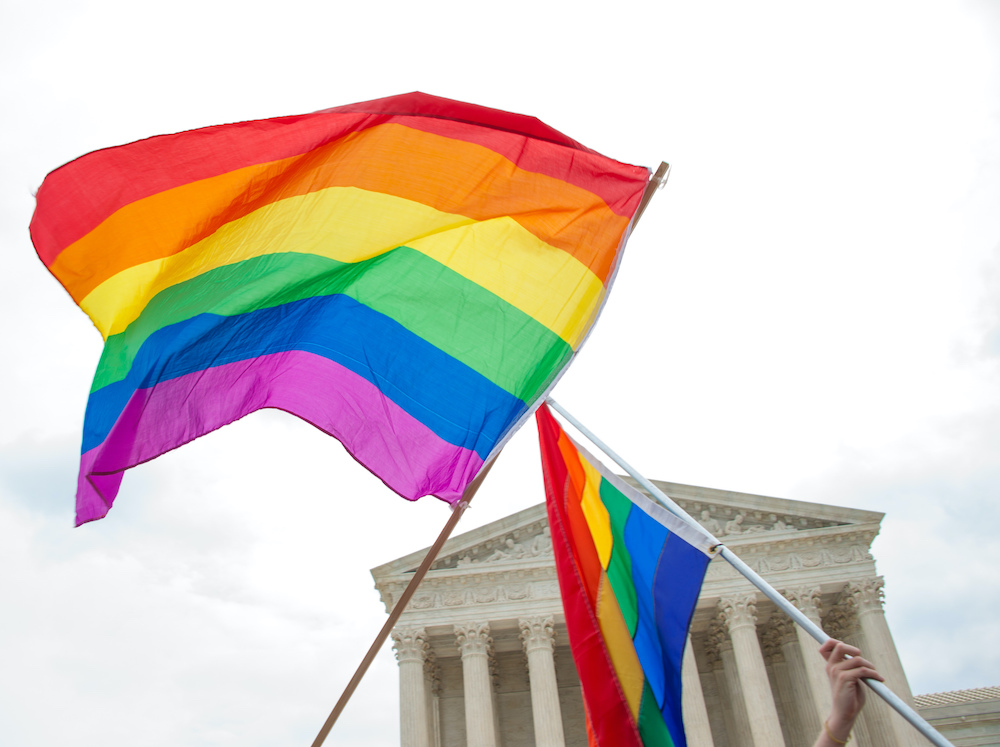Bostock v. Clayton County Holding
In a 5-4 split decision, the U.S. Supreme Court extended Title VII protections to the LGBTQ+ community. Specifically, SCOTUS held that under Title VII of the Civil Rights Act of 1964, an employer cannot discriminate against an employee based on their sexual orientation or transgender identity.
BACKROUND
This landmark decision comes eight months after the U.S. Supreme Court heard oral arguments from three (3) separate cases consolidated on appeal:
- Bostock v. Clayton County(11th Cir. 2018);
- Altitude Express v. Zarda(2d Cir. 2018); and
- R.G. & G.R. Harris Funeral Homes v. EEOC & Aimee Stephens (6th Cir. 2018).
The facts in each of these cases, all from different circuits across the United States, illustrate how an individual’s sexual orientation or gender identity could negatively impact their livelihoods in an employment context. Mr. Gerald Bostock, the plaintiff in Bostock v. Clayton County, was a child welfare worker in Clayton County Georgia. After about 10 years of working with the county, he joined a gay softball league. Clayton County fired Mr. Bostock shortly thereafter for conduct “unbecoming” of a county employee. In his case, the Eleventh Circuit held that Title VII does not protect individuals based on their sexual orientation. Mr. Bostock appealed.
In the Second Circuit case, Plaintiff Donald Zarda, now deceased, was a skydiving instructor at Altitude Express in the state of New York. He, like Mr. Bostock, was a long-time employee, having worked for Altitude for several seasons. One day, he revealed he was gay. A few days later, Altitude fired him. The Second Circuit allowed the case to move forward, indicating that Title VII did protect individuals based on their sexual orientation.
Finally, Ms. Aimee Stephens, the plaintiff in the 6th Circuit case, worked at R.G. & G.R. Harris Funeral Homes for many years presenting as a man. As a transgender woman, Ms. Stephens decided to begin presenting as her authentic self. She informed her employer of her intention to present as a woman after returning from vacation. Her employer fired her before she could return to work. In this case, the Sixth Circuit ultimately held that Title VII protects individuals based on their transgender status.
ISSUE ON APPEAL
The question on appeal for these cases was not whether their respective employers discriminated against them or not. In fact, each of the circuit courts acknowledged the existence of discrimination based on sexual orientation or gender identity. Rather, the question was: Does Title VII protect individuals from such discrimination? Specifically, does the term “sex” contemplate sexual orientation and/or gender identity?
It is important to note that in each of these cases, in considering whether discrimination based on sexual orientation and gender identity was discrimination based on “sex” within the meaning of Title VII, the Courts were bound by precedents established in two very important Supreme Court decisions:
- Price Waterhouse v Hopkin’s, which held thatdiscrimination based on sex included discrimination based on sex stereotyping; and
- Oncale v. Sundowner Offshore Services, which held discrimination between members of the same sex (in this case, male co-workers), also violated Title VII.
The Odd Case Out…
Although the Second and Sixth Circuits applied the above precedents in their rulings, the Eleventh Circuit determined that neither Price Waterhouse nor Oncale applied to the issue of sexual orientation. The Eleventh Circuit’s decision itself was brief and conclusory, referring to its previous ruling in Evans v. Georgia Regional Hospital, Charles Moss, et al,850 F.3d 1248 (11th Cir. 2017), and the “Old Fifth” Circuit precedent, Blum v. Gulf Oil Corp., 597 F.2d 936, 938 (5th Cir. 1979).
Upon further review, the Eleventh Circuit’s decision seems to make less and less sense. The Evans decision relied upon by the court simply states that Blum’s precedent is binding even though Blum was decided before Price Waterhouse and Oncale. In Blum, the Court concludes without analysis that, “[d]ischarge for homosexuality is not prohibited by Title VII []”, citing to another Old Fifth Circuit case, Smith v. Liberty Mutual Insurance Co., 569 F.2d 325, 327 (5th Cir. 1978), also decided prior to Price Waterhouse and Oncale.
Predictably, Bostock’s ruling was in the minority in the three cases on appeal, but prior to 2017, 9 of the 13 federal circuit courts had also ruled that Title VII does not protect individuals based on sexual orientation.[1] A split emerged only that year when the Seventh Circuit held otherwise in Hively v. Ivy Tech Community College of Indiana 853 F.3d 339 (7th Cir. 2017).
With the circuit split and three (3) test cases on appeal, the issue of Title VII’s full reach was ripe for interpretation by the Supreme Court. And, on October 8, 2019, arguments were held to determine which way this split would be resolved.
The Supreme Court’s Analysis
Justice Gorsuch, writing for the majority, held that “[a]n employer who fires an individual merely for being gay or transgender violates Title VII.”
His analysis is simple: interpreted plainly, under Title VII, discrimination based on sexual orientation and gender identity is sex discrimination because “it is impossible to discriminate against a person for being homosexual or transgender without discriminating against that individual based on sex.” To illustrate this, Gorsuch presents multiple scenarios, such as an employee introducing their wife to their supervisor. If the employer fires a female employee for doing this but wouldn’t fire a male employee for the same, the employer has discriminated against the female employee because of her sex. According to the majority, unlike sports team preferences or tardiness, “homosexuality and transgender status are inextricably bound up with sex.”
[1] Questioning the Definition of “Sex” in Title VII: Bostock v. Glayton Cty GA. Kathrine Carter.

